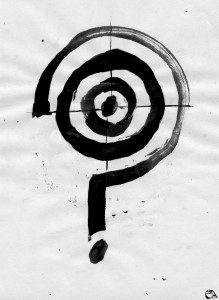6 May 2022 | Hungary, Opinion, Poland, Ruth's blog, United Kingdom, United States

Prime Minister Boris Johnson samples an Isle of Harris gin. Photo: Justin Tallis/PA Wire/PA Images
This week was election week in the UK and, as a former parliamentarian, you’d expect me to be writing about the joy of being able to express ourselves at the ballot box and the vital importance of democratic values when they seem so under attack at the moment in too many places to mention.
I love elections, I love the debate, I love speaking to people on their doorsteps and there is nothing like a successful election count for your party. I cherish the fact that I am lucky enough to live in a democracy, that typically my human rights are protected because my fellow citizens also believe that democracy is something to be protected. But voting is a means to an end – it allows us all to hold our politicians to account and to ensure that our core values are reflected in our government. This only works if you believe that your democratically elected government is going to stick to the rules and it’s that that I have been reflecting on for the last couple of weeks.
There are some conversations that keep coming back to you. That spark debate and lead you to question the status quo. Last month, I had a series of meetings where there was a recurring theme that did just that.
International norms and the rule of law, which underpin both our democratic states and our world order, are only relevant if state actors recognise them and that culturally we all acknowledge their necessity.
The moral authority of democratic countries is dependent on how they choose to apply the rule of law – both domestically and internationally. On whether they are prepared to defend core democratic values, even when inconvenient, on a national and international stage. It’s the application of these norms and rules which empower democratic states to challenge others when they break them. And the recurring message from my meetings was that there was no longer an acceptance that democratic states were prepared to uphold the rule of law – if it didn’t suit them. And therefore, we are losing our moral authority to intervene when others break the law.
Poland is being fined one million euros a day by the European Court of Justice for undermining its domestic judiciary. Rather than comply with the ruling, Poland has been happy to let the fine mount up – a proportion of its EU finding withheld to pay for it.
The European Commission is also cutting funding to Hungary for eroding legal standards in the EU.
The British Prime Minister has been fined for breaching his own Covid-19 regulations and, pre-pandemic, was found to have unlawfully suspended Parliament.
In the US we saw incitement by leading politicians to undermine a smooth transition of power after the last presidential election.
This would be dangerous at any time, but right now when Russia and China are both attempting to leverage their power and influence, invade and threaten their neighbours we have never needed to uphold our international norms more.
The leaders of our democratic nation states speak with a level of moral authority on a global stage because their voice is our voice, because they are seen to uphold our core values – and they can therefore challenge other world leaders when they cross the line. If our current global order is to survive it’s therefore imperative that our leaders uphold the law – whether it suits them or not.
The rule of law is the basis of the campaigns that Index runs. Our work is framed by Article 10 of the European Convention on Human Rights – that everyone has the right to freedom of expression. We demand that national states uphold the values espoused by the Universal Declaration of Human Rights. If our leaders aren’t upholding these values, then it’s not just their voices that are weakened but ours too.
My fear is that when international norms aren’t followed – when our leaders opt in and opt out of laws and norms they don’t like – then repressive regimes thrive and their citizens are the ones that suffer.
So, this is really a plea to all of us who are lucky enough to live in democratic societies – hold your leaders to account and make sure that they comply with the law – so that we all have the moral authority to hold the tyrants’ feet to the fire.
25 Jun 2021 | Opinion, Ruth's blog
[vc_row][vc_column][vc_single_image image=”116995″ img_size=”full” add_caption=”yes”][vc_column_text]It’s a year since I joined the Index family.
I think for all of us the last 12 months have been an emotional rollercoaster. The impact of Covid-19 has been a cloud over our lives; we’ve lost people close to us, we’ve all feared the effect of a virus no one had heard of 18 months ago, we’ve missed our loved ones and we’ve looked on in horror at events both at home and abroad as political leaders have both failed to manage the pandemic and undermined basic human rights under the guise of public health protections.
Repressive leaders have moved against their citizens, we’ve witnessed coups, heard testimony from detention camps and totalitarian regimes have restricted freedoms to an even greater extent throughout the world. And we’ve seen some of the most important vehicles of media freedom undermined – from Rappler to the Apple Daily.
It’s been difficult not to feel impotent. We haven’t been able to travel to stand with those being oppressed. Democratic countries have understandably focused their efforts on their domestic challenges and the institutions we depend on to enforce our shared norms as outlined in the Universal Declaration of Human Rights have been distracted by the global public health emergency. In other words, it has felt that totalitarian leaders have had a free pass to enforce even harsher restrictions on their peoples.
At Index, even despite the pandemic, we’ve strived to shine a spotlight on some of the most egregious attacks on free expression around the globe. In the last 12 months, we’ve supported journalists, writers, artists and academics in over two dozen countries. We’ve published reports on the impact of Covid-19, the current use of SLAPPs to undermine journalists and on online harms. Index has held events exploring the impact of 100 years of CCP rule in China, as well as on the untold stories hidden by Covid-19 and the impact of AI on social media content. And nearly three quarters of a million people have engaged with our work.
We’ve rebranded, redesigned the magazine and have completely changed our annual Freedom of Expression awards and we’ve started the celebrations to mark our 50th birthday. All of this and our team have only met in person three times, as we continue to do our work from home.
I’m so proud of the Index family, they have adapted and continue to push the envelope, making sure that no dictator can think that the world isn’t watching and that activists around the world know that we have their back. There is so much work to do in the months and years ahead in the ongoing battle for free speech, but after working with the team for a year I don’t doubt that we are making a positive difference, highlighting the bravest campaigners in the world and with your help – providing a voice for the persecuted.
[/vc_column_text][/vc_column][/vc_row][vc_row][vc_column][three_column_post title=”You may also want to read” category_id=”41669″][/vc_column][/vc_row]
8 May 2017 | About Index
[vc_row][vc_column][vc_column_text]

A drawing by French cartoonist t0ad
Adopted and proclaimed on 10 December 1948 by the General Assembly of the United Nations, the Universal Declaration of Human Rights contains 30 articles that have been embedded in international treaties, national constitutions and other laws. The declaration is one of the cornerstones of the International Bill of Human Rights, which became law in 1976.
The full declaration sets out the basic rights all people should enjoy and expect from their governments and other governments. Though the declaration is often ignored, it represents the ideal that the world’s government should strive to meet.
Article 18 and Article 19 deal with freedom of thought and freedom of expression most directly, though other articles also reference these fundamental rights.
Article 18 of the Universal Declaration of Human Rights
Everyone has the right to freedom of thought, conscience and religion; this right includes freedom to change his religion or belief, and freedom, either alone or in community with others and in public or private, to manifest his religion or belief in teaching, practice, worship and observance.
Article 19 of the Universal Declaration of Human Rights
Everyone has the right to freedom of opinion and expression; this right includes freedom to hold opinions without interference and to seek, receive and impart information and ideas through any media and regardless of frontiers.[/vc_column_text][/vc_column][/vc_row][vc_row][vc_column][vc_custom_heading text=”Subscribe to the Index newsletters” font_container=”tag:h3|text_align:left” use_theme_fonts=”yes”][vc_separator color=”black”][/vc_column][/vc_row][vc_row][vc_column width=”1/2″][vc_column_text]
Index on Censorship is a nonprofit that defends people’s freedom to express themselves without fear of harm or persecution. We fight censorship around the world.
To find out more about Index on Censorship and our work protecting free expression, join our mailing list to receive our weekly newsletter, monthly events email and periodic updates about our projects and campaigns. See a sample of what you can expect here.
Index on Censorship will not share, sell or transfer your personal information with third parties. You may may unsubscribe at any time. To learn more about how we process your personal information, read our privacy policy.
You will receive an email asking you to confirm your subscription to the weekly newsletter, monthly events roundup and periodic updates about our projects and campaigns.
[/vc_column_text][/vc_column][vc_column width=”1/2″][gravityform id=”20″ title=”false” description=”false” ajax=”false”][/vc_column][/vc_row][vc_row][vc_column][vc_separator color=”black”][/vc_column][/vc_row][vc_row][vc_column][vc_custom_heading text=”More information about freedom of expression” font_container=”tag:h2|font_size:26|text_align:left” use_theme_fonts=”yes”][vc_column_text]Why is free speech important? Freedom of expression is a fundamental human right. It reinforces all other human rights, allowing society to develop and progress. The ability to express our opinion and speak freely is essential to bring about change in society.
Why is access to freedom of expression important? All over the world today, both in developing and developed states, liberal democracies and less free societies, there are groups who struggle to gain full access to freedom of expression for a wide range of reasons including poverty, discrimination and cultural pressures. While attention is often, rightly, focused on the damaging impact discrimination or poverty can have on people’s lives, the impact such problems have on free expression is less rarely addressed.[/vc_column_text][/vc_column][/vc_row]
3 Feb 2012 | Index Index, minipost
The United Nations Human Rights Committee have found that the defamation conviction of a Philippines journalist violated the journalist’s right to free expression. In the landmark ruling, the UN committee said that the prison sentence handed to journalist Alexander Adonis of Bombo Radyo, following his reporting on an alleged affair between a Philippine congressman and a married woman, was “incompatible” with Article 19 of the Universal Declaration of Human Rights. The UNHRC has given the Philippine government 180 days to provide “information about the measures taken to give effect to the Committee’s views”.


